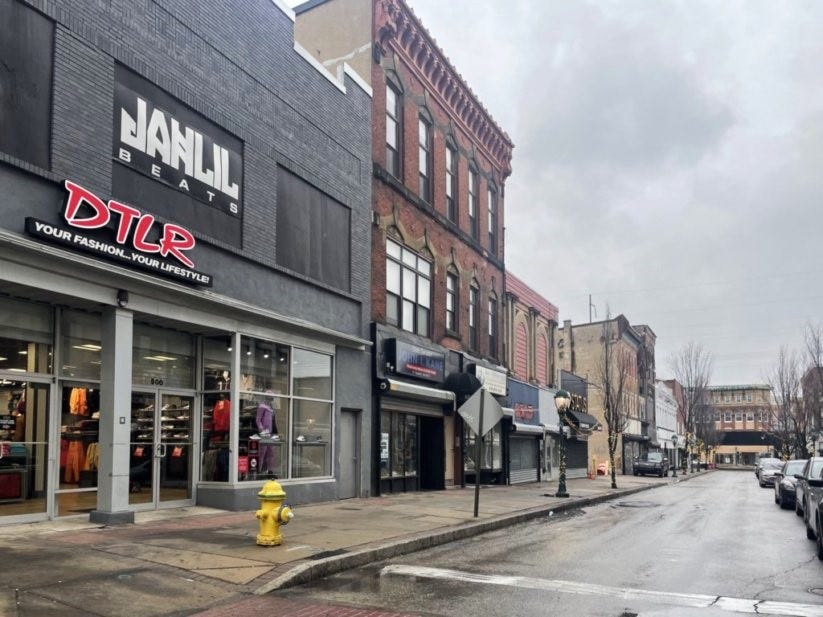The three-year fight over who's in charge of a bankrupt city
A 'definitive' ruling this week in Pennsylvania means Chester's financial recovery plan can finally move forward.
Happy weekend, readers! This week’s newsletter is an update on the slow-moving bankruptcy of Chester, Pennsylvania, the Philadelphia suburb I’ve been following for the past year. After more than nine months of waiting, the Pennsylvania Supreme Court finally issued its ruling on a key piece of the city’s recovery plan. The court affirmed the city Receiver’s plan, rejecting the challenge brought by now-former Mayor Thaddeus Kirkland and other elected officials. Now, the bankruptcy case in federal court could potentially start moving faster than the glacial pace it has set thus far.
While the court ruling is limited to Pennsylvania, it touches on a few themes that are central to other distressed cities across the country.
The unofficial ruling: You made your bed, now lie in it.
The court was asked to rule on whether City Receiver Michael Doweary’s modification to Chester’s recovery plan violated the state’s law governing distressed cities, Act 47. Doweary was appointed receiver in 2020 but his progress on implementing a financial recovery plan has been stymied by years of major resistance from city officials. In Nov. 2022, Doweary filed for bankruptcy in federal court on behalf of Chester. Shortly after, he sought approval from a state court to alter the city’s recovery plan to remove the elected officials from their roles as department heads and instead hire professionals to run them.
The elected officials claimed it was a change in Chester’s form of government. After the Commonwealth Court sided with Doweary, the mayor and others appealed to the state Supreme Court. The court also sided with Doweary, allowing him to finally move forward on his plan.
Read more from Tony Wood in the Philadelphia Inquirer
Read the opinion
To me, the subtext of the high court’s opinion is pretty darn clear: “You made your bed, now lie in it.”
The majority opinion by Justice David N. Wecht pulled some of the dicier quotes from the lower court’s ruling, including the one about Chester’s “culture of denial, blame-shifting, arrogance, and nepotism within the City’s government,” and “significant operational issues within the City’s departments.”
That ruling by Judge Ellen Ceisler was one of professional exasperation bordering on outrage and the Supreme Court opinion has a similar vibe:
[D]rastic times call for drastic measures…. The General Assembly predicted that circumstances may arise in which ‘local officials are unwilling or unable to accept a solvency plan developed for the benefit of the municipality.’ It decided that such situations may require ‘the exercise of the Commonwealth’s sovereign and plenary police power in emergency fiscal conditions to protect the health, safety and welfare of a municipality’s citizens.’ The City of Chester’s local officials must accept the exercise of that power, whether they like it or not.” (emphasis added)
Moreover, Justice Wecht spent considerable space (10 of the 61 total pages) rehashing the facts. It’s clear he wanted to underscore some of the more jaw-dropping details such as the $400,000 in taxpayer money that former Councilman and Finance Department Director William Morgan lost in a phishing scam, and the incarcerated parks employee who was still on the city payroll. “The Receiver's efforts to investigate and remedy the matter hit a wall when the Receiver sought the assistance of the City’s leaders [in terminating the employee],” Wecht wrote.
Doweary’s chief of staff Vijay Kapoor said this week that the team was “thankful” to the court for its “definitive” and “unambiguous” ruling. He added that the plan now allowed for Chester to be run like most other Pennsylvania cities. “It is certainly a change from the way Chester has been run,” he said. “But it’s going to be a way that is pretty typical for cities.”
State takeovers and the city-state relationship
This week’s ruling provides important clarification about the city-state relationship in Pennsylvania’s municipal distress law.
Keep reading with a 7-day free trial
Subscribe to Long Story Short to keep reading this post and get 7 days of free access to the full post archives.





